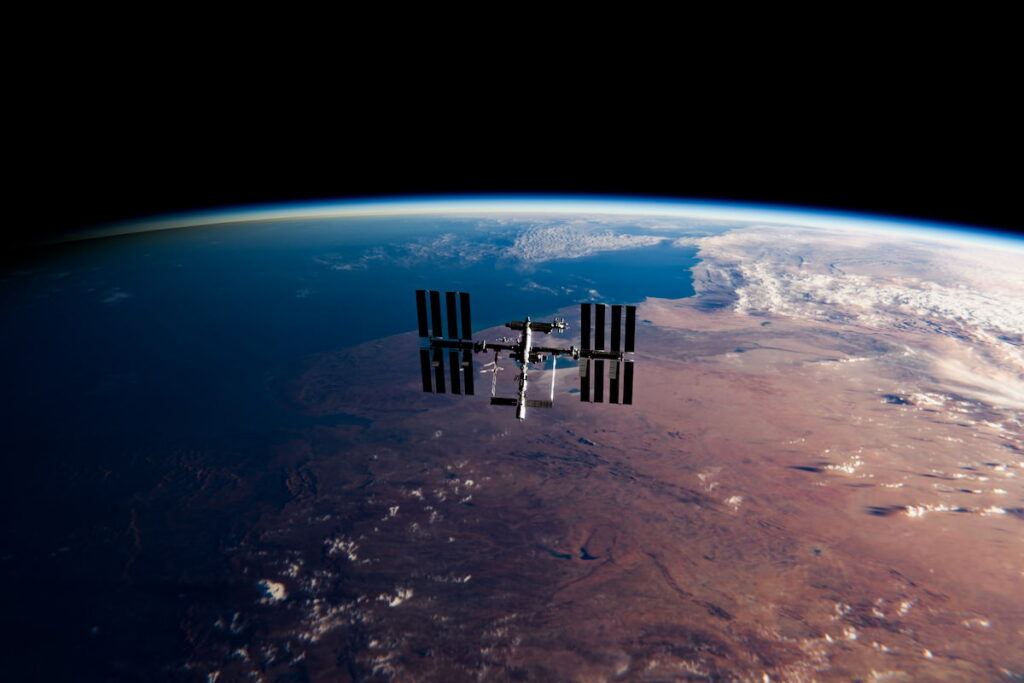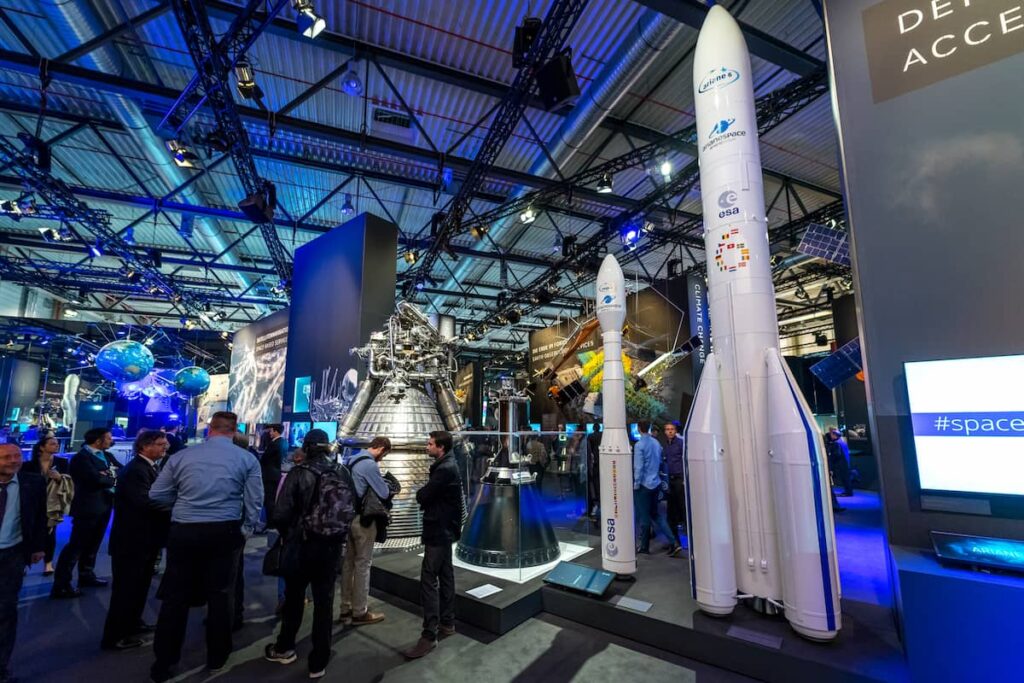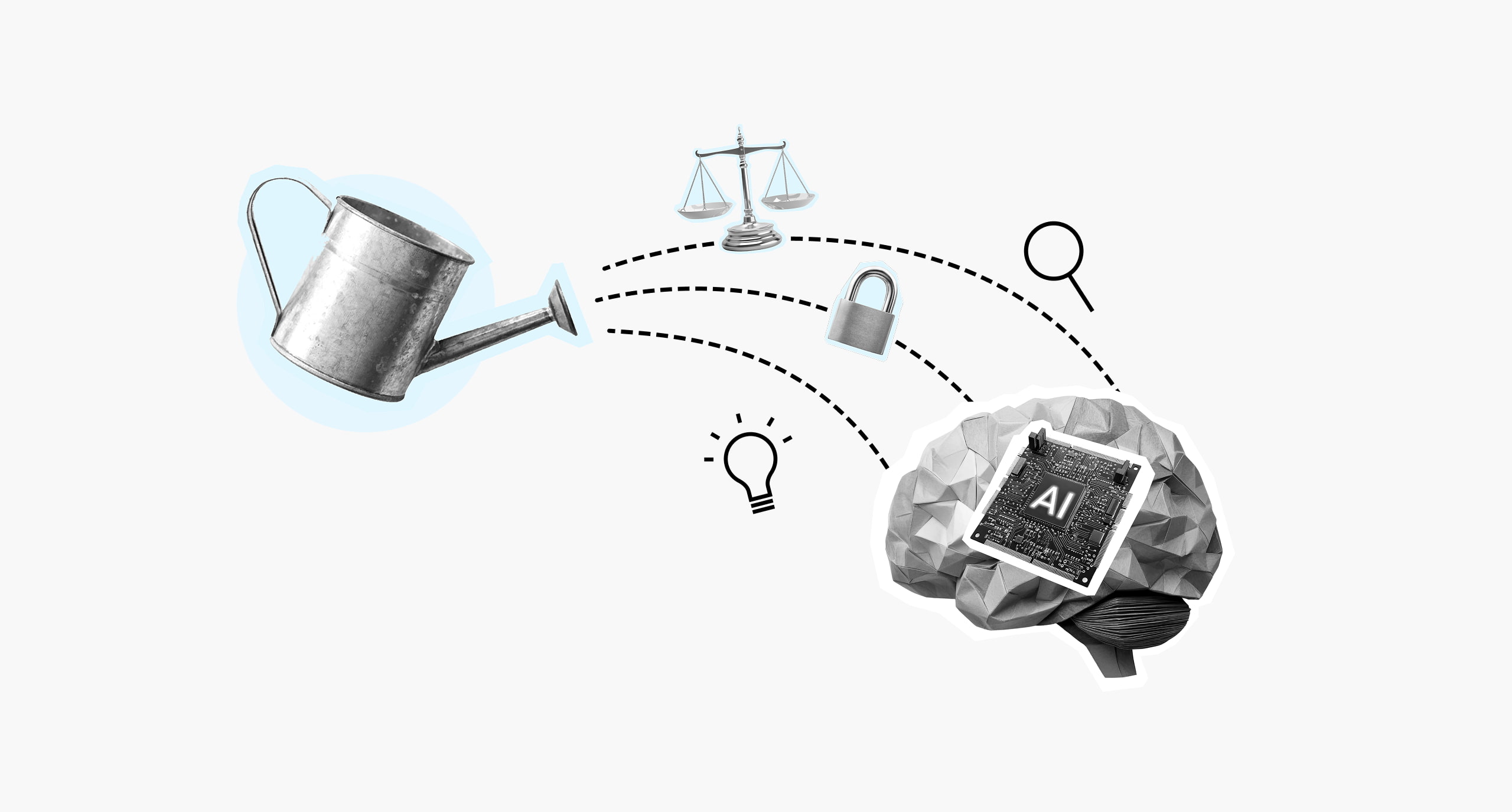If you thought Artificial Intelligence was a business fad, think again. NASA is now committed to integrating AI at every level of operations. And that includes the outright mechanics of space travel. The 2024 AI Use Case Inventory already documents a range of applications, from autonomous robotics to advanced data analytics.
From rovers navigating distant planets to AI-assisted mission planners on Earth, let’s look at how AI in space exploration has taken flight.
Current applications of AI in NASA
Artificial Intelligence scales complex tasks. NASA’s missions are becoming more ambitious and data-heavy, which requires faster decision-making, precision and adaptability in uncertain environments. Their use of AI spans several mission-critical domains.
1. Navigation
Tools like AEGIS (Autonomous Exploration for Gathering Increased Science) use rapid data collection to help spacecraft and rovers navigate freely. And systems like Enhanced AutoNav and Terrain Relative Navigation are already being integrated into the Perseverance Rover to help it move across Mars without human input.
2. Planning
AI systems like the ASPEN Mission Planner and AWARE are providing breakthroughs in managing mission constraints, resource limitations and unexpected delays. The Onboard Planner for the Mars2020 Rover even allows the machine to plan its own tasks in real-time, making it even more adaptable in the Martian environment.
3. Environmental monitoring
Here on Earth, AI tools like SensorWeb and Volcano SensorWeb are helping us track natural disasters and coordinate responses. And NASA is leveraging these to understand Martian climate patterns through the Global Seasonal Mars Frost Maps.
Ethics for AI in space exploration
As AI becomes more powerful, so too grows the need for ethical deployment. That’s why NASA has committed to the principles of Responsible AI (RAI) as defined in the White House Executive Order 13960. These principles ensure implementation that’s accountable, traceable and aligned with human oversight.
AI in space exploration must be used with particular transparency. After all, it’s responsible for making automated decisions in high-risk situations. NASA’s ethical approach includes rigorous testing and safeguards to ensure that AI systems behave as intended—even in unpredictable environments.
These standards ensure that NASA’s use of AI meets societal and scientific responsibilities.

By prioritizing ethics alongside innovation, NASA is setting a global standard for how AI should be developed and used. This balance between cutting-edge capability and responsible governance offers a model not only for other space agencies but also for organizations across industries that are exploring the use of AI in high-risk, high-impact environments.
AI across worldwide space agencies
NASA does seem to be leading the way, but others are following suit. The European Space Agency (ESA), for example, has been running the Artificial Intelligence Lab for Human and Robotic Space Missions since 2024. Based at the European Astronaut Centre in Cologne, the lab focuses on embedding AI across all mission phases.
ESA’s efforts combine AI with technologies like robotics, quantum computing, and extended reality. It’s also particularly useful in training, whereby virtual environments can help with deep space mission simulations. The Lab is also piloting language models on the International Space Station to assist flight controllers by turning complex documentation into actionable information.
Looking ahead, ESA is preparing AI to support lunar Gateway operations, surface missions on the Moon, and robotic expeditions like the ExoMars Rosalind Franklin rover.

These systems will need to function autonomously, especially where communication delays make Earth-based commands impractical. From resilient AI hardware to emotionally intelligent support tools for astronauts, ESA’s Lab will ensure that Europe remains competitive in the next era of exploration.
The future of Artificial Intelligence
As much as AI is helping us discover what’s out there, it’s also helping us make sense of what’s in front of us. Space-centric technology is helping us detect methane leaks, monitor deforestation and forecast natural disasters. AI-powered analytics are also being pioneered through ESA’s Copernicus program to support precision agriculture and improve water resource management. So while we look for alternative homes, AI might make our own more resilient.
NASA’s future plans now revolve around an AI-driven future.

NASA’s portfolio of AI applications will keep growing. The agency is already developing AI tools for deep space missions and autonomous planetary research. However, the impacts may be most keenly felt in Earth-bound operations. AI will progressively reduce the cost of space missions through straightforward automation. By embedding AI at the core of operations, NASA sets a precedent in handling advanced technologies on the global stage.
Study with us at IE School of Science & Technology
Want to gain a future-proof skill set? IE School of Science & Technology, part of IE University, offers master’s programs built around the university’s strong commitment to AI innovation across all areas of learning and operations. We embed this forward-thinking philosophy in everything we teach, especially within our tech programs.
Our Master in Computer Science & Business Technology bridges the gap between tech expertise and business leadership—skills that are increasingly essential across every industry. In just 11 months, you’ll gain a practical education that prepares you to innovate at the crossroads of business and technology.
For those passionate about data, our Master in Business Analytics& Data Science offers a customizable, hands-on experience that prepares you to thrive in the age of AI. With flexible study options, industry-recognized certifications and experiential learning, you’ll graduate ready to lead data-driven transformation.
Follow the link below to get more information.
Become part of the future of AI with IE School of Science & Technology
Get an education for the real world of work with the Master in Computer Science & Business Technology and Master in Business Analytics & Data Science.

Benjamin is the editor of Uncover IE. His writing is featured in the LAMDA Verse and Prose Anthology Vol. 19, The Primer and Moonflake Press. Benjamin provided translation for “FalseStuff: La Muerte de las Musas”, winner of Best Theatre Show at the Max Awards 2024.
Benjamin was shortlisted for the Bristol Old Vic Open Sessions 2016 and the Alpine Fellowship Writing Prize 2023.






